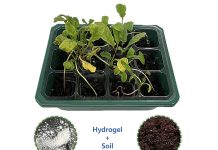
In a new study, researchers found that water filters may not remove all of the drinking water contaminants you’re most concerned about.
They found while using any water filter is better than using none—many household filters are only partially effective at removing toxic perfluoroalkyl substances, commonly known as PFAS, from drinking water.
And a few, if not properly maintained, can even make the situation worse.
The research was conducted by a team at Duke University.
PFAS has come under scrutiny in recent years due to its potential health impacts and widespread presence in the environment, especially drinking water.
Exposure to the chemicals used widely in fire-fighting foams and stain- and water-repellants, is linked to various cancers, low birth weight in babies, thyroid disease, impaired immune function, and other health disorders.
Mothers and young children may be most vulnerable to chemicals, which can affect reproductive and developmental health.
Some scientists call PFAS “forever chemicals” because they persist in the environment indefinitely and accumulate in the human body.
They are now nearly ubiquitous in human blood serum samples.
In the study, the team analyzed filtered water samples from homes in Chatham, Orange, Durham, and Wake counties in central North Carolina and New Hanover and Brunswick counties in the southeastern part of the state.
They found all of the under-sink reverse osmosis and two-stage filters achieved near-complete removal of the PFAS chemicals they were testing for.
In contrast, the effectiveness of activated-carbon filters used in many pitchers, countertop, refrigerator, and faucet-mounted styles was inconsistent and unpredictable.
The whole-house systems were also widely variable and in some cases actually increased PFAS levels in the water.
The team says the under-sink reverse osmosis filter is the most efficient system for removing both the PFAS contaminants prevalent in central [North Carolina] and the PFEAs.
But these filters also cost much more than other point-of-use filters.
This raises concerns about environmental justice since PFAS pollution affects more households that struggle financially than those that do not struggle.
One author of the study is Heather Stapleton, an associate professor of environmental health.
The study is published in Environmental Science & Technology Letters.
Copyright © 2019 Knowridge Science Report. All rights reserved.



